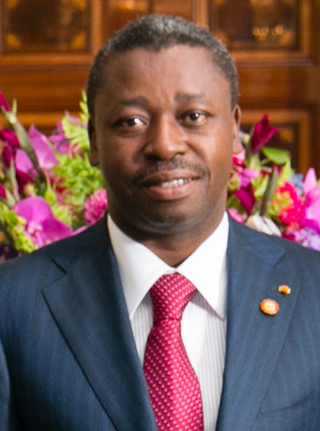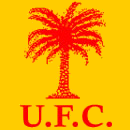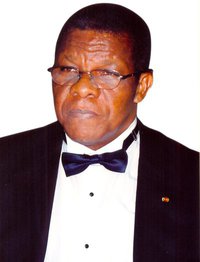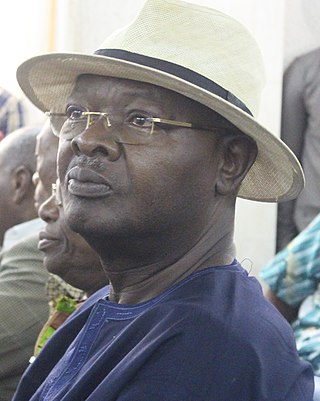
Togo, officially the Togolese Republic, is a country in West Africa. It is bordered by Ghana to the west, Benin to the east and Burkina Faso to the north. It is one of the least developed countries and extends south to the Gulf of Guinea, where its capital, Lomé, is located. It is a small, tropical country, which covers 57,000 square kilometres and has a population of approximately 8 million, and it has a width of less than 115 km (71 mi) between Ghana and its eastern neighbour Benin.
The history of Togo can be traced to archaeological finds which indicate that ancient local tribes were able to produce pottery and process tin. During the period from the 11th century to the 16th century, the Ewé, the Mina, the Gun, and various other tribes entered the region. Most of them settled in coastal areas. The Portuguese arrived in the late 15th century, followed by other European powers. Until the 19th century, the coastal region was a major slave trade centre, earning Togo and the surrounding region the name "The Slave Coast".

Politics of Togo takes place in a framework of a presidential republic, whereby the President of Togo is both head of state and head of government. Executive power is exercised by the government. Legislative power is vested in both the government and parliament. After independence, the party system was dominated first by the authoritarian Rally for the Togolese People, and later by its successor party, Union for the Republic.

Gnassingbé Eyadéma was a Togolese military officer and politician who was the president of Togo from 1967 until his death in 2005, after which he was immediately succeeded by his son, Faure Gnassingbé.

Sylvanus Épiphanio Olympio was a Togolese politician who served as prime minister, and then president, of Togo from 1958 until his assassination in 1963. He came from the important Olympio family, which included his uncle Octaviano Olympio, one of the richest people in Togo in the early 1900s.

Elections in Togo take place within the framework of a presidential system. Both the President and the National Assembly are directly elected by voters. Togo is a one party dominant state with the Union for the Republic in power.

Faure Essozimna Gnassingbé is a Togolese politician who has been the president of Togo since 2005. Before assuming the presidency, he was appointed by his father, President Gnassingbé Eyadéma, as Minister of Equipment, Mines, Posts, and Telecommunications, serving from 2003 to 2005.

Presidential elections were held in Togo on 24 April 2005, following the death in office of long-time president Gnassingbé Eyadéma. The main candidates were Eyadéma's son, Faure Gnassingbé, and opposition leader Emmanuel Bob-Akitani. The elections and the preceding period were marked by violence, with many people reported killed in various incidents. According to the official results, Gnassingbé won the election, taking slightly more than 60% of the vote. Violence flared in the capital Lomé after the results were announced, and thousands fled into neighboring countries.

Édouard Kodjovi "Edem" Kodjo, was a Togolese politician and diplomat. He was Secretary-General of the Organisation of African Unity from 1978 to 1983; later, in Togo, he was a prominent opposition leader after the introduction of multi-party politics. He served as Prime Minister from 1994 to 1996 and again from 2005 to 2006. Kodjo was President of the Patriotic Pan-African Convergence (CPP). Kodjo died on April 11, 2020, in Paris.
Fambaré Ouattara Natchaba was a Togolese politician. He was the President of the National Assembly of Togo from September 2000 to February 2005. He was a prominent member of the ruling Rally of the Togolese People (RPT) and a member of the Pan-African Parliament representing Togo.

The Union of Forces for Change is an opposition political party in Togo. The President of the UFC was Gilchrist Olympio and its Secretary-General was Jean-Pierre Fabre until 10 August 2010. Olympio is the son of the first President of Togo, Sylvanus Olympio, who was assassinated in a 1963 coup. On 10 August 2010, Jean-Pierre Fabre was elected as President of the party.

The Rally of the Togolese People was the ruling political party in Togo from 1969 to 2012. It was founded by President Gnassingbé Eyadéma and headed by his son, President Faure Gnassingbé, after the former's death in 2005. Faure Gnassingbé replaced the RPT with a new ruling party, the Union for the Republic (UNIR), in April 2012, dissolving the RPT.

Joseph Kokou Koffigoh is a Togolese politician, human rights activist, and a poet who served as Prime Minister of Togo from 27 August 1991 to 23 April 1994. Elected as Prime Minister by the opposition-dominated National Conference in 1991, Koffigoh was given full executive powers and tasked with overseeing a transition to multiparty elections. Beginning in December 1991, however, President Gnassingbé Eyadéma increasingly reasserted his authority at Koffigoh's expense. Although Koffigoh remained in office, the opposition eventually abandoned him, feeling he had become too cooperative with Eyadéma.

Messan Agbéyomé Gabriel Kodjo was a Togolese politician who served as Prime Minister of Togo from 29 August 2000 to 27 June 2002.
March 2000 passed without presidential action. New legislative elections were ultimately rescheduled for October 2001. Because of funding problems and disagreements between the government and opposition, the elections were again delayed, this time until March 2002.

Presidential elections were held in Togo on 4 March 2010. Incumbent President Faure Gnassingbé—who won his first term in a presidential election that followed the death of his father, long-time President Gnassingbé Eyadema, in 2005—faced radical opposition candidate Jean-Pierre Fabre, the Secretary-General of the Union of the Forces of Change (UFC), as well as several minor opposition candidates.

Protests against Faure Gnassingbé have occurred throughout Togo, starting when President Faure Gnassingbé assumed power after the death of his father Gnassingbé Eyadéma in February 2005.
The 1990–1991 Togo protests was a protest movement against then-president Gnassingbe Eyadema and his reforms. Strikes and demonstrations began by students on 5 October and soon became a daily movement which saw deaths and beatings while shootings and clashes between pro-government and anti-government demonstrators took place. Mass protests ended violently with clashes in November 1991.
The 2005 Togo protests and riots were demonstrations and rioting against the results of the presidential election and Faure Gnassingbe's takeover of power. Protests began in February with protesters demanding new elections and the end of the Gnassingbe dynasty. Around 100 were killed before the elections, but after the 2005 Togolese presidential election around 500 protesters were killed by Togolese Armed Forces, assisted by military-trained Rally of the Togolese People (RPT) militias.











